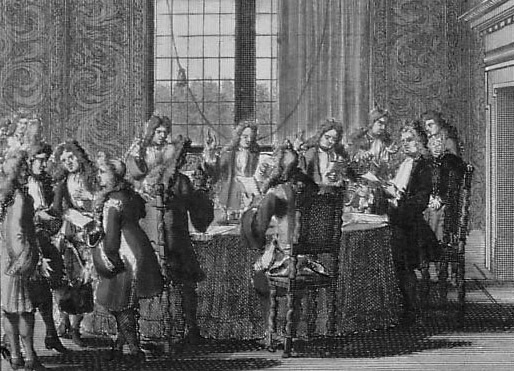Significance of the Treaty of Utrecht
Miscellanea / / August 08, 2023
 For more than 300 years the territory of Gibraltar in Spain has been a British colony. This circumstance is one of the consequences of the Treaty of Utrecht of 1713. Most historians consider that British hegemony in the order International began after the signing of the Treaty of Utrecht.
For more than 300 years the territory of Gibraltar in Spain has been a British colony. This circumstance is one of the consequences of the Treaty of Utrecht of 1713. Most historians consider that British hegemony in the order International began after the signing of the Treaty of Utrecht.
Background
The War of the Spanish Succession was not an internal conflict, as it divided the European powers
Archduke Charles belonged to the dynasty of the Habsburgs and Felipe V to that of the Bourbons and each of them had different support among the European nations.
Both disputed the throne Spanish, since the previous monarch (Carlos ll) had died without descendants and in his will he named Felipe his heir, but this appointment did not have the support of some European powers, such as England, Austria, Holland and Portugal (all of them bet on Carlos to occupy the crown of Spain, since they feared a possible alliance between France and Spain).
The Treaty of Utrecht ended the War of Succession
The dynastic rivalry between the two candidates ended with the triumph of Felipe V and in this way a war was imposed in Spain.
monarchy that reinforced the centralist model and limited the position of Aragonese, Valencians and Catalans. In 1713 the Treaty of Utrecht was signed and the following year peace was endorsed with the Rastadt Agreements, but on the peninsula the conflict ended in 1714 when the Felipe V's troops forced the defeat of the Austrians in the city of Barcelona (the Archduke Carlos did not accept the signing of the treaty and continued with his campaign military).The two aforementioned treaties had immediate consequences. On the one hand, Felipe V was consolidated on the throne of Spain, since the European monarchies supported him. However, in exchange they had to receive a series of compensations:
1) two Spanish territories, Gibraltar and the island of Menorca, passed into English hands,
2) Newfoundland, Nova Scotia and Hudson Bay belonged to France and ended up in the hands of England,
3) the English also obtained an authorization from Spain to expand their trade routes in America and increase the trade of slaves,
4) the Austrian Empire incorporated Milanese, Naples, Flanders and Sardinia into its territory,
5) the island of Sicily passed into the hands of Savoy,
6) the French king Louis XIV managed to get the European powers to recognize his grandson Felipe V as the new king of Spain and
6) France and Spain promised not to unify their power in a single crown.
England came out on top
With the Treaty of Utrecht, the Bourbon monarchy established itself in Spain. However, it can be stated emphatically that the great winners were the English: they expanded their power trade, increased the slave trade and incorporated two territories of great geostrategic value, Menorca and Gibraltar.
write a comment
Contribute with your comment to add value, correct or debate the topic.Privacy: a) your data will not be shared with anyone; b) your email will not be published; c) to avoid misuse, all messages are moderated.

